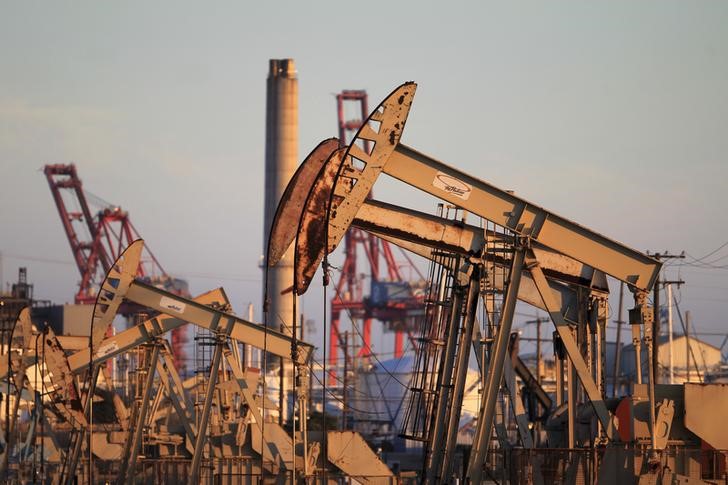Freeport-McMoRan stock tumbles after Trump imposes copper tariffs
TOKYO, April 23 (Reuters) - Oil extended gains on Thursday
amid signs that producers are cutting production to cope with a
collapse in demand for fuel as the coronavirus outbreak ravages
the world's economies.
Brent crude LCOc1 was up 33 cents, or 1.6%, at $20.70 a
barrel by 0254 GMT after rising more than 5% on Wednesday.
U.S. West Texas Intermediate (WTI) futures were up 28 cents,
or more than 2%, at $14.06 a barrel, having risen around a fifth
in the previous session. U.S. crude futures fell to below minus
$40 on Monday on concerns that buyers were running out of
storage space to take deliveries.
In the United States, the world's biggest oil producer,
Oklahoma's energy regulator said companies could shut wells
without losing their leases, an initial victory for struggling
U.S. producers seeking relief from the market crash after a
surge in production. The state is the fourth-largest oil
producer in the U.S.
As oil consumption collapses, the Organization of the
Petroleum Exporting Countries (OPEC), Russia and other
producers, a group known as OPEC+, are set to cut supply by a
record 9.7 million barrels per day (bpd) from May 1. Those cuts
may have to be extended to match the shortfall in demand,
analysts said. Loadings of Russia's Urals crude grade from the Baltic Sea
in the first 10 days of May are set to be 36% lower than the
same period in April, indicating the country is complying with
the cuts. U.S. stockpiles of crude, gasoline and distillate fuels rose
last week as inventory are building around the world, the Energy
Information Administration said on Wednesday.
Crude inventories USOILC=ECI rose by 15 million barrels in
the week to April 17 to 518.6 million barrels, near a record of
535 million barrels set in 2017. EIA/S
Inventories are expected to keep rising, due to the collapse
in demand from the viral outbreak and an aggressive response by
refiners to cut processing.
In Japan, the world's third-biggest economy, data released
on Thursday showed services shrank at the most on record while
manufacturers also shut down operations. The coronavirus sweeping across the world has infected more
than 2.5 million people and killed nearly 180,000 people,
forcing governments to impose strict lockdowns and shutter
industries while pushing central banks unleash unparalleled
stimulus.
